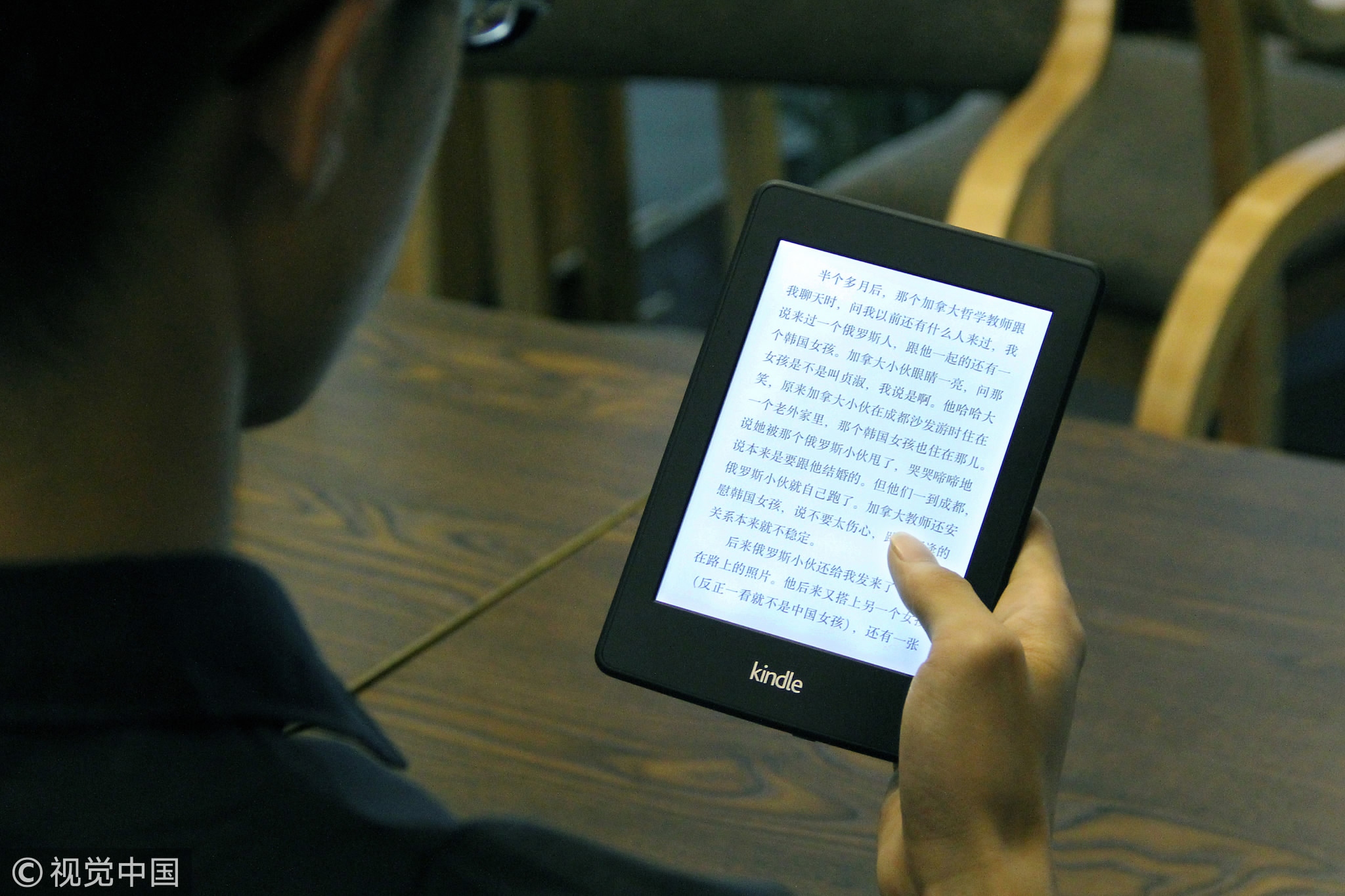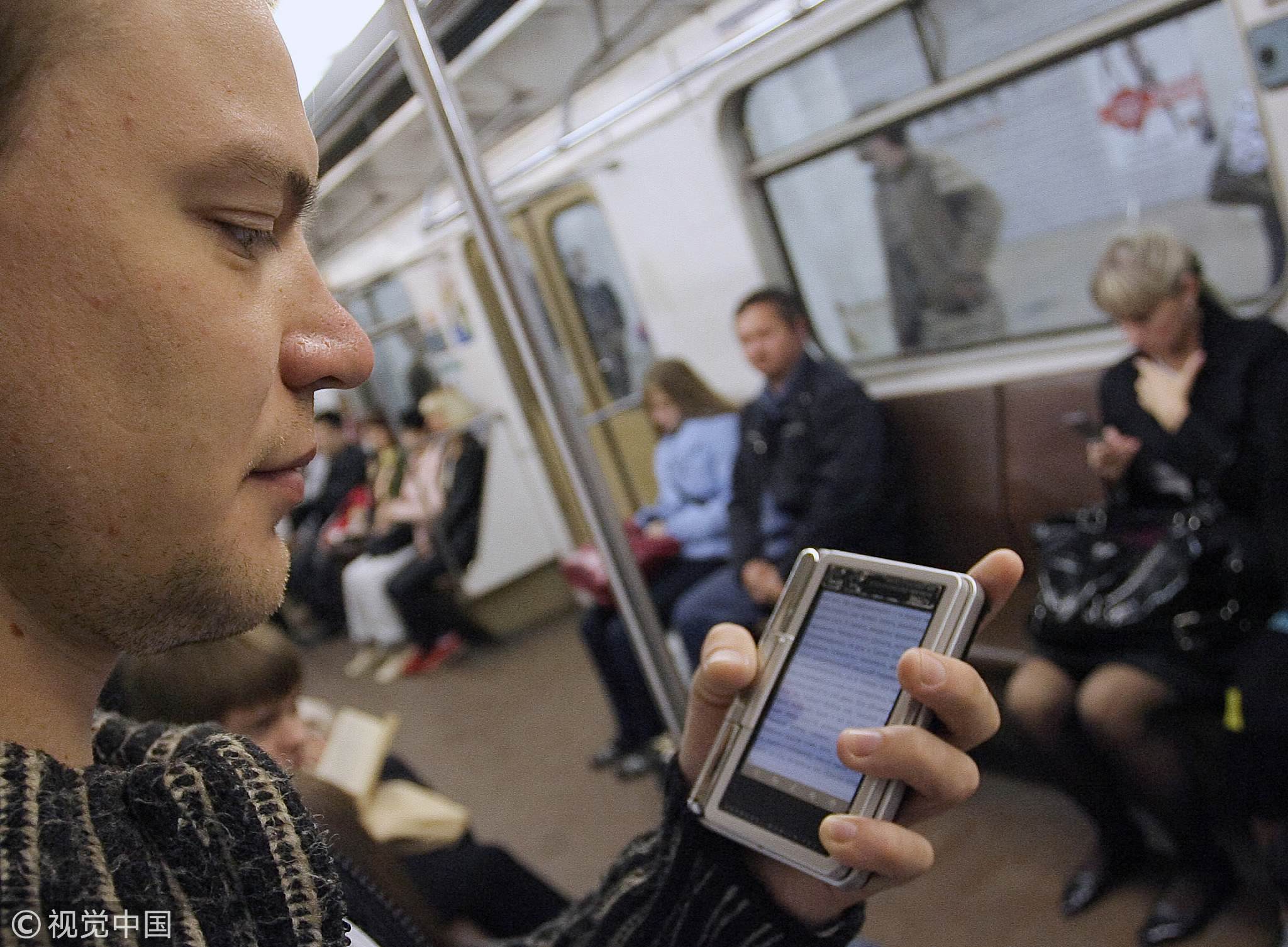
Opinions
18:56, 23-Apr-2018
Opinion: What changes has the internet brought to reading?
Guest commentary by Wang Yan

World Book and Copyright Day celebrates the enjoyment of books and reading. It encourages everyone to access books – the most beautiful invention for sharing ideas beyond the boundaries of humanity, space and time. Traditionally, people have read books for learning, for pleasure and for interacting with a wider world in “the aroma of paper and ink and rustle of pages.”
But the Internet is increasingly becoming the source for our content – the news we read, the research we do for work and school, the entertainment we enjoy. An increasing number of readers have switched from print to digital; most readers read both print and e-books.
In latter case, people use mobile devices and new services such as online libraries and enjoy the easy access and portability. The Internet is changing the reading landscape, including what readers read, how they read, and where.

China's first e-book reading cafe was opened in Nanjing by Yao Shen, a junior student at Nanjing Normal University, on Sept. 1, 2014. / VCG Photo
China's first e-book reading cafe was opened in Nanjing by Yao Shen, a junior student at Nanjing Normal University, on Sept. 1, 2014. / VCG Photo
The good news is that everybody is reading more. Compared with hard copies, mobile devices and e-readers are lighter and more cost-effective. And there are also advantages to the onscreen reading experience, including searchable keywords, toolbars and the ability to look up anything. People read faster and the range is wide, and their life horizons are thus expanded.
With the advent of microblogging platforms and media pluralism, there is also a greater variety of materials readily available on computers and cell phones.
People are now reading text messages, social media and bite-sized entries, and material with varied commentary, rather than books, has become not only a leisure but also main source of information and knowledge.
On one hand, online reading enables people to reach out and connect with each other, share information, thoughts and feelings; on the other, as the deep, reflective thinking associated with reading is also increasingly replaced by “web-page graze,” it seems that our attention span and capacity to think is undermined.

A man drinking coffee and using a digital tablet on a balcony. VCG Photo
A man drinking coffee and using a digital tablet on a balcony. VCG Photo
Seemingly lifelong learning is occurring as it was expected at the end of last century; people could learn through reading whenever and wherever they could by various means facilitated by the Internet. Is it true?
People essentially learn through the deep and effective reading that requires strong concentration. It is usually a long and continuous process, accompanied by silence and contemplation. In such learning, readers have a deeper engagement with the text through sustained linear attention that usually occurs with print books.
However, people read the Internet differently than they read print. They tend to skim and scan for the information they want, rather than starting at the beginning and plowing through to the end.

Used books. /VCG Photo
Used books. /VCG Photo
People who are used to reading quick bits of information online might find it hard to stay focused on long reading assignments.
Research also suggests that people’s comprehension diminish in online reading because many extraneous stimuli interrupt the transfer of information from sensory to working memory, and from working to long-term memory.
Studies have shown that print books enable deeper reading than digital, as well as better understanding and memory recall.
Print readers reported higher measures associated with empathy and transportation and immersion, and narrative coherence than digital readers. It is also evidenced that students who read texts in print scored significantly better on reading comprehension tests than students who read the texts digitally.
However, with the prevalence of technology in work and life, reading behaviors might continue to shift.

A man reading an ebook. /VCG Photo
A man reading an ebook. /VCG Photo
A survey also indicates that young digital natives’ comprehension and recall don’t seem to vary considerably depending on what reading technology they use. They appear to have mastered focus and self-monitoring skills and take real joy in online reading with ease and comfort.
Therefore, as people get more and more immersed into online reading which may initially limit readers' capacity to understand what they read, it could change over time as readers become more accustomed to reading on screen.
It is foreseeable that people would be able to benefit from diversified formats to engage (interact) more deeply and widely with literature and enjoy reading and learning in both the digital and print world in a richer reading future.
(Wang Yan is a senior specialist at the National Institute of Education Sciences. The article reflects the author's opinion, and not necessarily the views of CGTN.)

SITEMAP
Copyright © 2018 CGTN. Beijing ICP prepared NO.16065310-3
Copyright © 2018 CGTN. Beijing ICP prepared NO.16065310-3